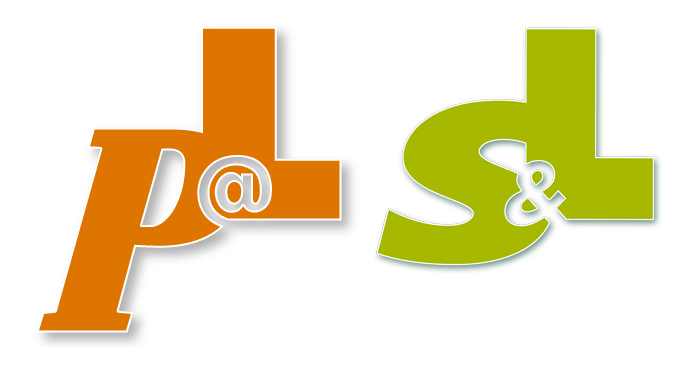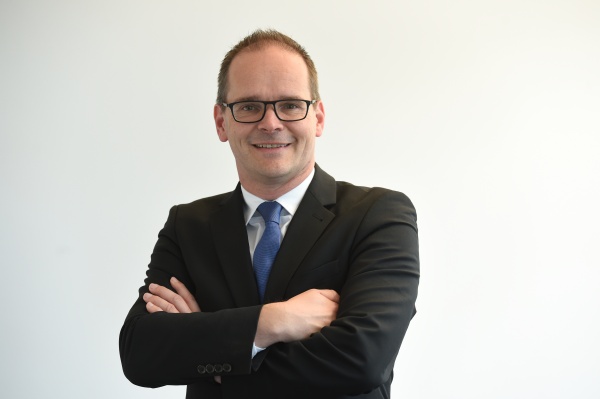Fair city sharing - what can urban planning contribute?
Our cities have grown over centuries. This also reflects the history of urban society, i.e. who was in charge, which professions were accessible to whom. A city is a multi-layered structure:...


YOUR FORUM FOR PLAY, SPORTS UND LEISURE AREAS

Playground@Landscape regularly conducts interviews with politicians responsible for educational policy at the didacta trade fair, such as Yvonne Gebauer, Minister for Schools and Education of North Rhine-Westphalia, Dr Susanne Eisenmann, Minister for Education, Youth and Sports of the State of Baden-Württemberg. This year, the interview was held with Lower Saxony's Minister of Education Grant Hendrik Tonne.
Playground@Landscape: "Making. Future. Together."- This is the motto of the project "Education 2040", which was launched in 2018 by the Lower Saxony Ministry of Education and Cultural Affairs. It is about the question of what and how children, adolescents and young adults should learn in the future in order to be fit for the challenges of a world in constant change. What's behind it?
Grant Hendrik Tonne: Education 2040 is a participatory project. It is about gathering ideas and visions for the education of the future from different perspectives in order to develop guidelines for education policy. In various event formats, we discuss future educational goals, content, structures, formats and actors with teachers, students, parents and many other people interested in good education. And the results of the events that have already taken place - with a gratifyingly high and committed participation - confirm our approach and that there are many future-oriented, creative ideas among those active in practice.
The main results of the various discussion rounds may be summarised by a few guiding principles, such as "Thinking education from the child’s perspective", "Living spaces instead of classrooms", "Free spaces in the timetable" as well as "Open schools - create networks".
The results achieved so far are of course included in the considerations on how to cope with the pandemic, but also in the planning beyond. For example, at the beginning of the school year, the state of Lower Saxony launched a comprehensive action programme called "Ready for the Future", which already includes essential aspects of the 2040 education guiding principles. However, another outcome of the "Education 2040" project are 65 "Schools of the Future", which were launched in September 2021 as a model project and 120 more as a network. Here, the project ideas are put into practice, innovative teaching and learning formats are tested and in part scientifically accompanied with the aim of providing schools with useful results.
P@L: Since 2016, the Lower Saxony Ministry of Education has been working according to the framework concept for inclusive schools. What are the goals and measures?
Grant Hendrik Tonne: The government of Lower Saxony has a broader understanding of inclusion. In this context, inclusion means the comprehensive and unrestricted participation of every individual in social life. This explicitly includes the right to education. The inclusive school is a school of individual support, in which every child with his or her individual talents, gifts and special needs receives the best possible support. This also means that no child in Lower Saxony is denied access to a particular school or type of school because of a restriction or disability - which is also stated in Article 24 of the UN Convention on the Rights of Persons with Disabilities.
In the meantime, we have also implemented far-reaching structural changes: be it in equipping schools with special needs education expertise, in new forms of teaching, in equipping them with additional educational specialists, in the training of teachers or in the increasingly broad and diverse range of counselling and support services. In addition, there are extended transfer and recruitment opportunities for special school teachers and an extensive range of in-service training for teachers and colleges of all school types. In 39 districts and independent cities there are efficient Regional Advisory and Support Centres (German abbreviation RZI), with whose support we are intensifying the expansion of inclusion. They advise all those involved in schools and coordinate the special needs education resources on site. Further RZI will be established on 1.8.2022. In addition, we have made the in-school counselling offer considerably more flexible so that all teachers can benefit from the special needs education resources at their school. Teachers from Mobile Services are available to pupils, guardians and schools in all regions of the country.
We have also revised the regulation and provisions according to which a need for special educational development is determined. This makes the procedure much easier for both the schools and for the pupils and more intensive counselling for parents and guardians is also included.
Currently the Ministry of Education is working on providing schools with more assistance and a toolbox for dealing with pupils with very challenging behaviour. Joint teaching with these pupils is often difficult, so the Ministry of Education is taking further necessary measures. This also includes making 1.5 million euros available nationwide within the framework of the programme "Startklar in die Zukunft" (Ready for the Future) to train teachers for special prevention and intervention programmes, which can then be set up directly and on a permanent basis in the schools.
P@L: The state government is firmly committed to catch up and continue the comprehensive process already started in the digitisation of schools in Lower Saxony. Keyword Digital Pact: What is being done?
Grant Hendrik Tonne: Let me explain it in some detail: In order to advance the digitisation of schools and good teaching and to improve the interlinkage between them, the commitment of many political and social actors is needed - and also a great effort on the part of everyone in the coming years. In addition, we are committed to improve our school equipment and at the same time enable teachers to work digitally.
Through the DigitalPakt Schule (Digital Pact for Schools) alone, 522 million euros are available from federal funds to improve the IT education infrastructure at Lower Saxony's schools until 2024. 90 per cent of the amount goes directly to the schools, ten per cent is reserved for state-wide and cross-state projects. In order to receive funding from this budget, the school authorities must submit the relevant applications. So far (as of the beginning of November), about 3100 applications for funding have been submitted by the school authorities with a volume of about 138 million euros, of which about 134 million euros have been approved.
As early as summer 2020, we also launched an immediate equipment programme of the Federal Government and Länder for mobile terminals, which will be made available to pupils according to their needs. Meanwhile the 52 million euros budgeted here have already been spent.
School authorities and schools in Lower Saxony can also issue laptops, notebooks and similar mobile PCs as loan equipment for teachers in the state. Here we have increased the federal subsidy of 47 million euros to almost 52 million euros. The funding application procedure is currently in progress. So far, about 98% of these funds have been applied for and approved by the school authorities.
With a further supplementary agreement to the DigitalPakt Schule (Digital Pact for Schools), the federal government and the state will fund the training as well as the personnel and material costs of system administrators with a volume of around 52 million euros during its term. In addition, the state has made a further 11 million euros available to the municipalities for system administration in 2020.
This much about hardware. As early as May last year - shortly after the start of the pandemic - Lower Saxony also opened the former prototype of the Lower Saxony Education Cloud (NBC), including a video conferencing tool, to all interested schools well ahead of time. This allowed us to react quickly to the special challenges to school organisation posed by the Corona pandemic. There is great interest on the part of the schools. In the meantime, about 1600 schools in the country have registered. Behind them are more than 800,000 user accounts created by pupils and teachers. The education cloud can be used, for example, to exchange tasks between teachers and make them available to pupils. Teachers can communicate with the whole class or individual students. Since this summer, we have been operating and developing the education cloud together with the states of Brandenburg and Thuringia.
In addition to the education cloud, the so-called content offer was considerably expanded. More than 40,000 digital teaching media can now also be accessed in the NBC via mundo.schule, a cross-Länder DigitalPakt project. The state also provides schools with the high-quality mathematics learning programme "bettermarks" for free use in the education cloud. And through the Ministry of Education's programme "Startklar für die Zukunft" (Ready for the Future), an additional 14.5 million euros will be invested in content this year and in the coming year, such as in diagnostic tools that will soon be available.
Parallel to the technical programmes, we have completely converted and considerably expanded the training offers for teachers in the area of digital teaching and distance learning. More than 80,000 teachers have made use of this offer so far.
P@L: Through digitisation, kids are spending even more time in front of the screen. So “exercise” is completely disappearing from the school environment?
Grant Hendrik Tonne: No, definitely not. I always emphasise that learning with digital devices is not meant as a substitute, but as an additional tool for teaching and learning - and where it makes sense. In general, learning also depends on a healthy balance between the different teaching approaches and methods. Exercise and sports are also part of school and healthy learning. The role of school sports goes far beyond health maintenance and physical exercise. Physical activity, play and sports are indispensable components of holistic education and health promotion; they have a lasting positive influence on the development of children and young people. They strengthen the physical and mental well-being and the integration of people in their living environments, regardless of their gender and their cultural and social background. In order to improve our implementation in schools, we concluded a pact with the Lower Saxony Sports Association in February entitled "Pact for Lower Saxony 2021-2030 - Physical Activity, Play and Sports in Schools, Day Care Centres and Clubs". In the course of this pact and other programmes, many sports clubs and initiatives support our schools in this area. However, we have been regularly awarding schools the title of " Sports-friendly schools" for many years, if they fulfil certain criteria.
P@L: The educational chain begins in kindergarten. It is generally known what potential exercise - especially in kindergarten - and primary school age - has; nevertheless, there is often a lack of awareness. This is similarly true for physical education in primary schools, which often does not take place to an adequate extent and is often led by unqualified teachers. What is your opinion?! And: What chances does school sports have for prevention and healthy growing up?
Grant Hendrik Tonne: Promoting the healthy development of children is part of the educational mission of day care centres. This also includes providing children in day care centres and nurseries with a variety of experiences in physical activity. Only in this way can they acquire basic motor skills and expand their scope of action and experience. However, this formal mandate is not the end of the story. As early as 2004, Lower Saxony, under the leadership of the Ministry of Education, initiated the 'Moving Kindergarten' initiative, which aims to improve the learning and development conditions for as many children as possible by providing opportunities for physical activity. The 'Bewegter Kindergarten' has since become a trademark. It consists of three parts: The module 'Education Offensive' is a qualification measure for day-care centre professionals; the module 'Trademark Movement Day-Care Centre' is a certification programme; and the module 'Action Programme Cooperation Day-Care Centre-Sports Club' brings clubs and day-care centres together.
Physical education at primary schools is firmly anchored in the timetable and is usually taught by sports teachers, unless there are no or too few specialist teachers available at the school. This can be the case especially in smaller primary schools, e.g. if no application is received for an advertised position or if the only sports teacher is temporarily unavailable due to maternity or parental leave.
In order to ensure high-quality physical education even with teachers who do not teach physical education, further training measures on "Physical Education in Primary Schools" are offered and carried out. The contents of the further training measures include subject-specific and subject-didactic basics, curricular guidelines as well as teaching and pedagogical practice. Furthermore, I would also like to emphasise that it is part of the pedagogical concept at primary schools that the class teacher spends a lot of time with the class. This can also affect physical education.
The opportunity to achieve something through school is obvious: unlike club sports, only at school can all children and young people be reached, regardless of their gender and their cultural and social background. This is invaluable for prevention and growing up healthy.
P@L: Sitting is the new smoking! More physical activity in the schoolyard would be an alternative! Would you support an "Alliance for Physical Activity"? And why is exercise in the schoolyard so important!
Grant Hendrik Tonne: Here, too, the following applies: In addition to classic school sports, exercise and play are indispensable components of holistic education and health promotion that we implement in our schools. Here, too, I can refer to the sports pact that we have concluded with the Lower Saxony Sports Association. It applies to activities in day-care centres as well as in schools. Active breaks - outdoors if possible - are not only important for physical health. It is also about social interaction and play.
P@L: You just emphasised it: exercise and sports play a major role in the educational mission of schools. In your opinion, how should an "exercise-friendly schoolyard" be designed?
Grant Hendrik Tonne: Schoolyards are places for physical activity and communication, but also for active relaxation. Playing together during the break not only allows children to switch off and clear their heads, but also to learn social interaction in a playful way and to release the excess energy built up during concentrated learning. Changing between physical activity and rest, between tension and relaxation, stress and recreation is a basic need, especially for children and young people.
To make sure that all this works, a schoolyard or a playground should offer children and young people the appropriate opportunities to let off steam. Ideally, a schoolyard is therefore more than just an asphalt square, but should invite children and young people to play and move in an age-appropriate way, encourage their imagination and creativity, while at the same time offering them suitable opportunities to relax.
P@L: To take up the keyword of digitisation once again: Will there also be billions in funding from the state of Lower Saxony for an "exercise-friendly schoolyard" at some point?
Grant Hendrik Tonne: A beautiful and exercise-friendly schoolyard does not necessarily require a lot of money. Often, a lot can be achieved with what is already available. Incidentally, it is not the Ministry of Education and Cultural Affairs, but the respective local school authority that is responsible for financing the equipment of the schoolyard.
However, I would also like to point out here - parallel to the kindergartens - the "Bewegte Schule" project. It offers schools ideas and concrete offers for active breaks, for which, as a rule, no large or even no financial resources need to be available. They are all available on the website www.bewegteschule.de. There is also information on many other aspects of the "Bewegte Schule", including educational videos. Incidentally, the "Bewegte schule" is a joint project of the Ministry of Education and Cultural Affairs with the AOK, the Braunschweig Municipal Accident Insurance Association, the Municipal Accident Insurance Association Hanover / Lower Saxony State Accident Insurance Fund, the Commercial Health Insurance Fund, the State Sports Association, the State Association for Health and Academy for Social Medicine as well as the Techniker Krankenkasse.
P@L: How do they keep yourself moving?
Grant Hendrik Tonne: When time allows, I like to jog, occasionally I play badminton. However, time spent in the garden is also quite active.